It is nearly 50 years since the first steam locomotive was rescued from Barry scrapyard for preservation. Fiona Kennaugh tells the story of how her father, Alexander Macdonald, was instrumental in saving this locomotive, a move which was to open the door for a further 212 steam engines to leave the famous yard.
The only surviving Midland 4F 0-6-0 No. 43924 was built at Derby works in 1920 – for a cost of £5094 for the engine and £1454 for the tender. Its planned running life was to be a standard 45 years.
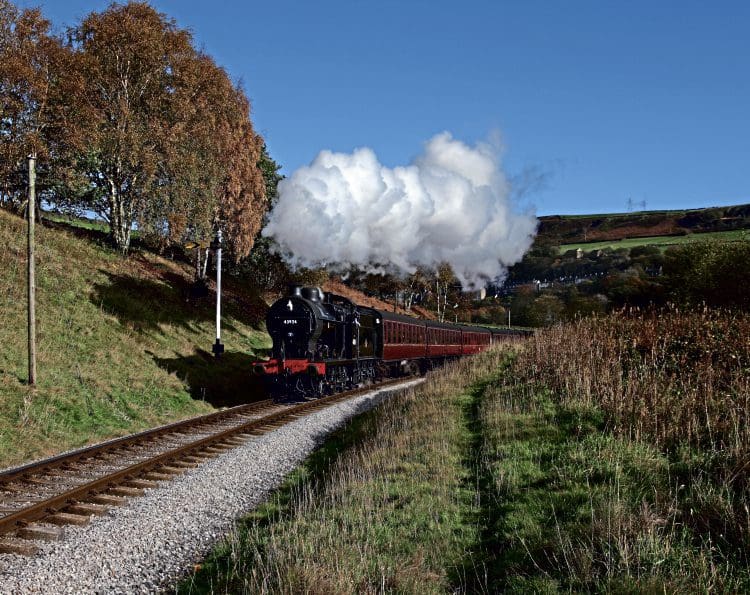
The Fowler 4F 0-6-0 is a class of locomotive designed by Henry Fowler who was the chief mechanical engineer of the Midland Railway, which then in turn became part of the London Midland and Scottish Railway in 1923.
Enjoy more Heritage Railway reading in the four-weekly magazine.
Click here to subscribe & save.
They were nicknamed ‘Duck Sixes’ due to the wheel arrangement. No. 3924 was renumbered 43924 by BR on February 5, 1949 after Nationalisation in 1948.
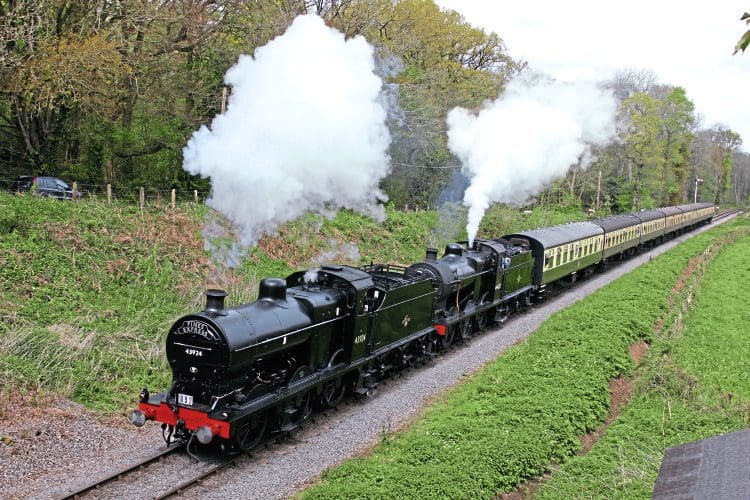
The engine spent most of its working life hauling coal and soda ash and relaying empty ICI tanks on the return journeys. Bristol Barrow Road, Gloucester, Leeds, Bridgwater, Chester and Temple Meads are mentioned frequently in its time line.
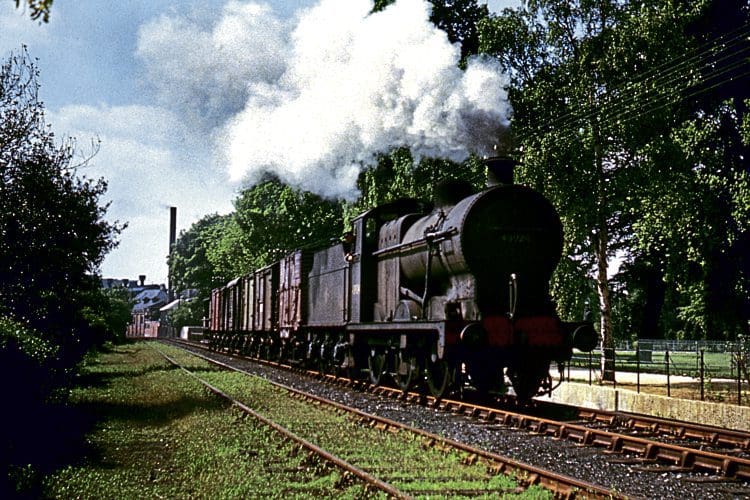
Its last day’s service was at St Phillips Marsh yard on May 15, 1965, and it was withdrawn in June of that year and sold to Woodham Brothers’ scrapyard at Barry, South Wales on July 26, 1965.
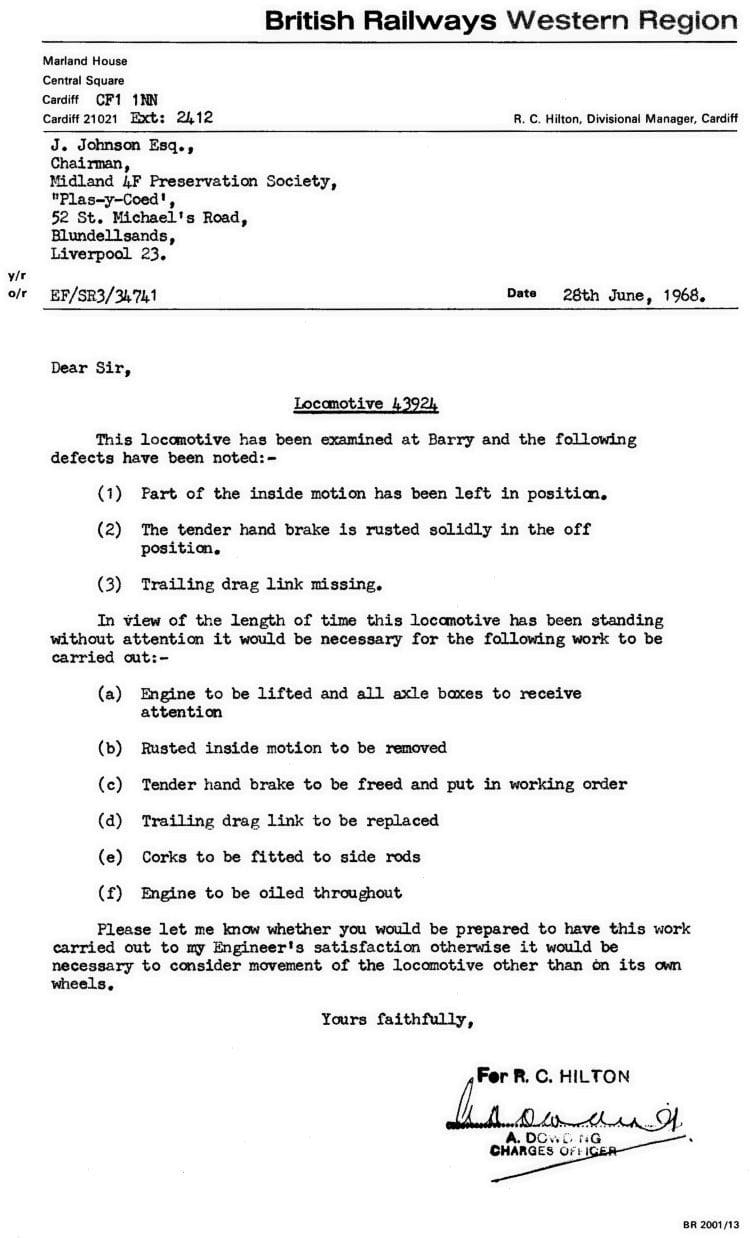
Over 200 engines and many more wagons were lined up in this scrapyard, owned and run by Woodham Brothers, one of them being David Lloyd Victor Woodham (aka Dai) a man eventually responsible for saving many steam engines from the cutters’ torch.
He realised astutely what the enthusiasts wanted and aided and abetted them as much as he could.
He had clearly seen the light himself as in a letter to Captain Peter Manisty dated April 21, 1976 Dai wrote: “I can truthfully say I now know the meaning of enthusiasm – may I take this opportunity of wishing you many happy and successful years ahead for steam preservation.”
First to leave
Dai broke up the wagons first while leaving the engines until later, and as a result, out of a total of 297 engines purchased, no less than 213 eventually left his yard either by road or rail rather than being scrapped.
The first to leave for a life in preservation was No. 43924, the only Midland 4F in the yard, which brings into the story my father, Alexander Macdonald.
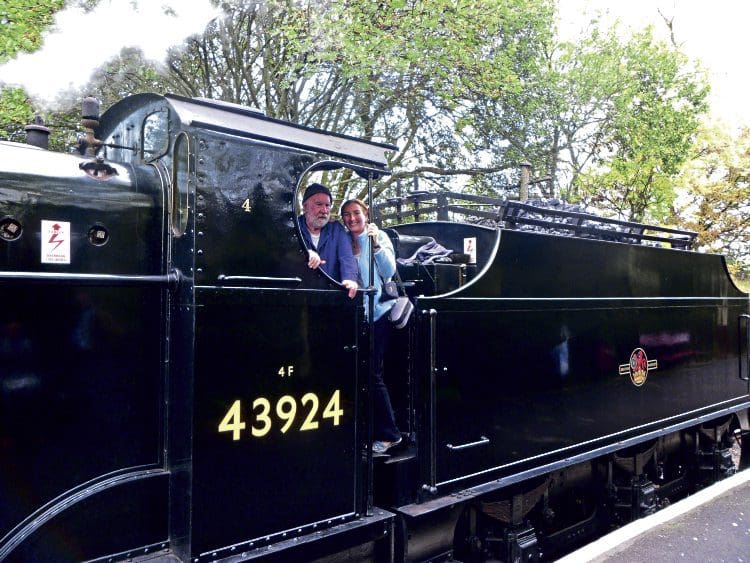
His involvement in railways and steam started early. Known as Alec or Alex, at the age of 16 he started his long career on BR at Bank Hall shed on Merseyside as a fitter.
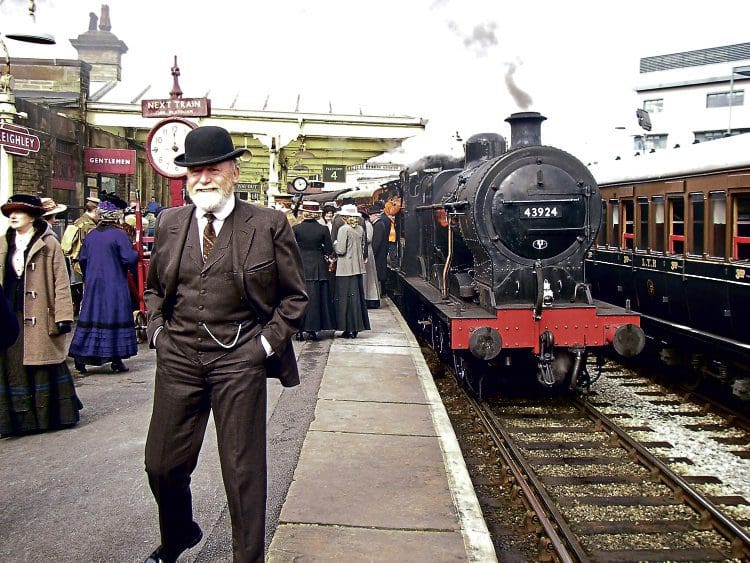
He worked in cramped filthy smokeboxes and lost the ends of two of his fingers on a lathe. Alec was offered a job for life or a cash payout in compensation.
He did believe steam would last his career out but steam was replaced earlier than he imagined.
Read more in Issue 236 of HR – on sale now!
Advert
 Enjoy more Heritage Railway reading in the four-weekly magazine. Click here to subscribe.
Enjoy more Heritage Railway reading in the four-weekly magazine. Click here to subscribe.




